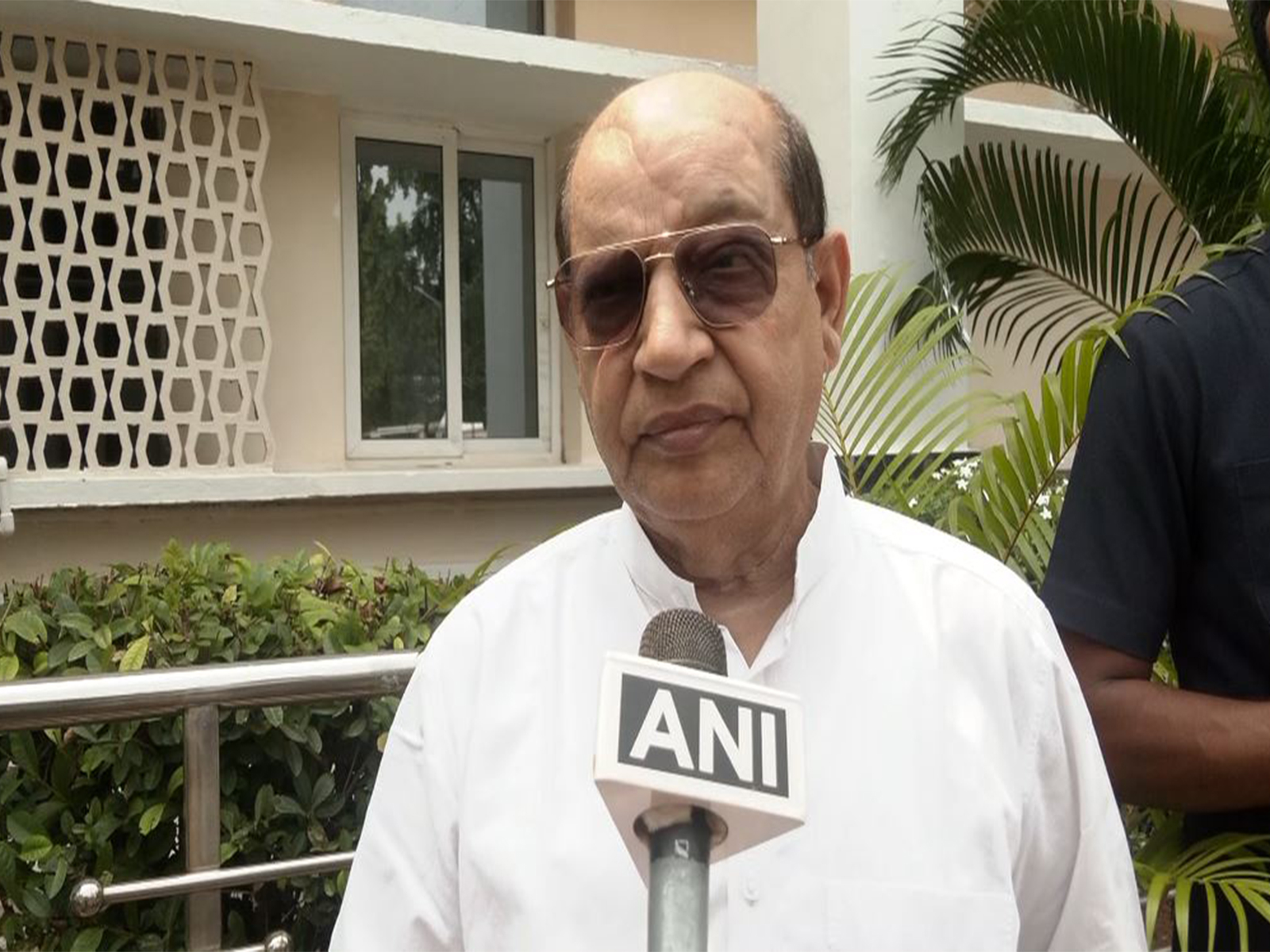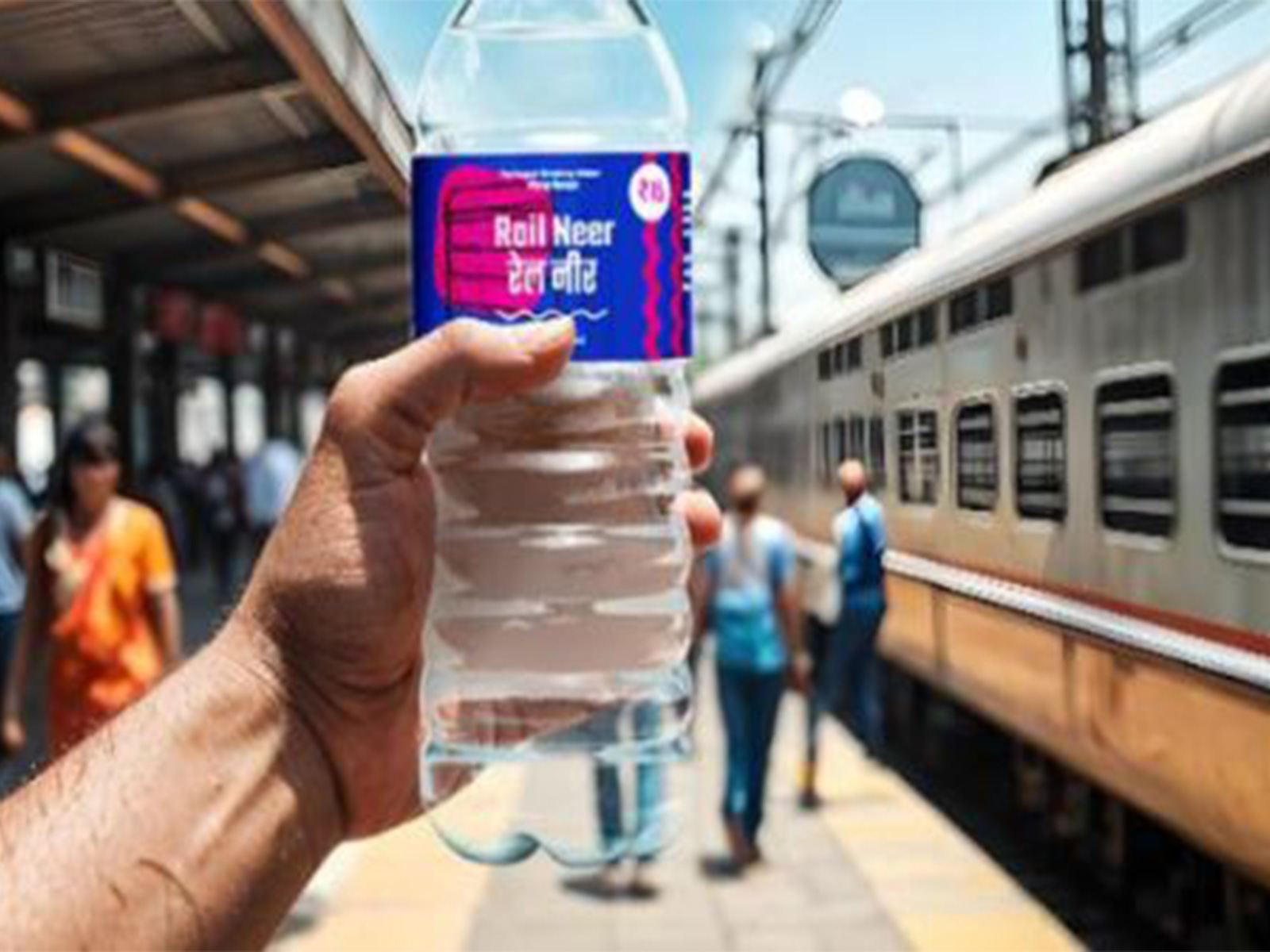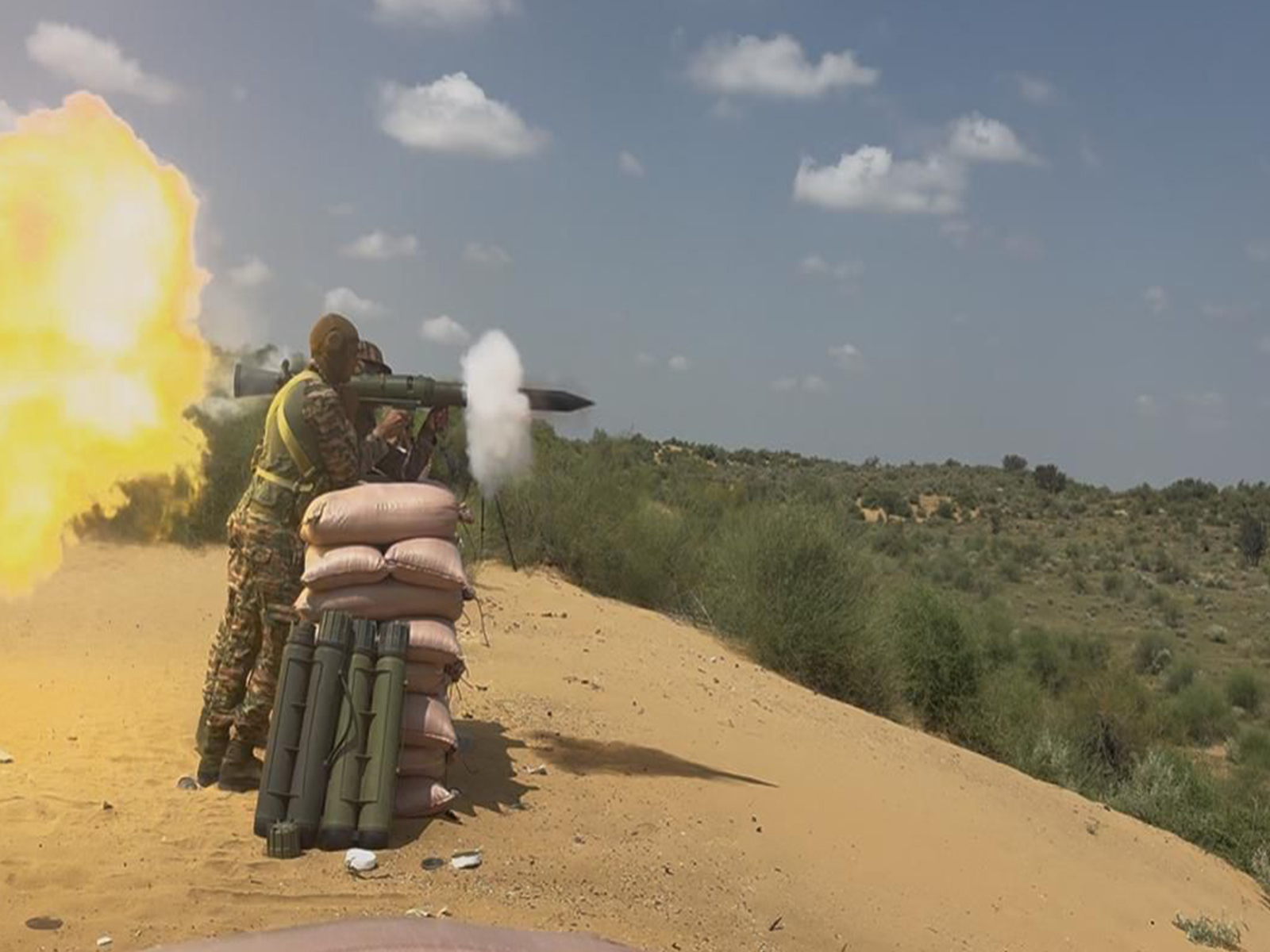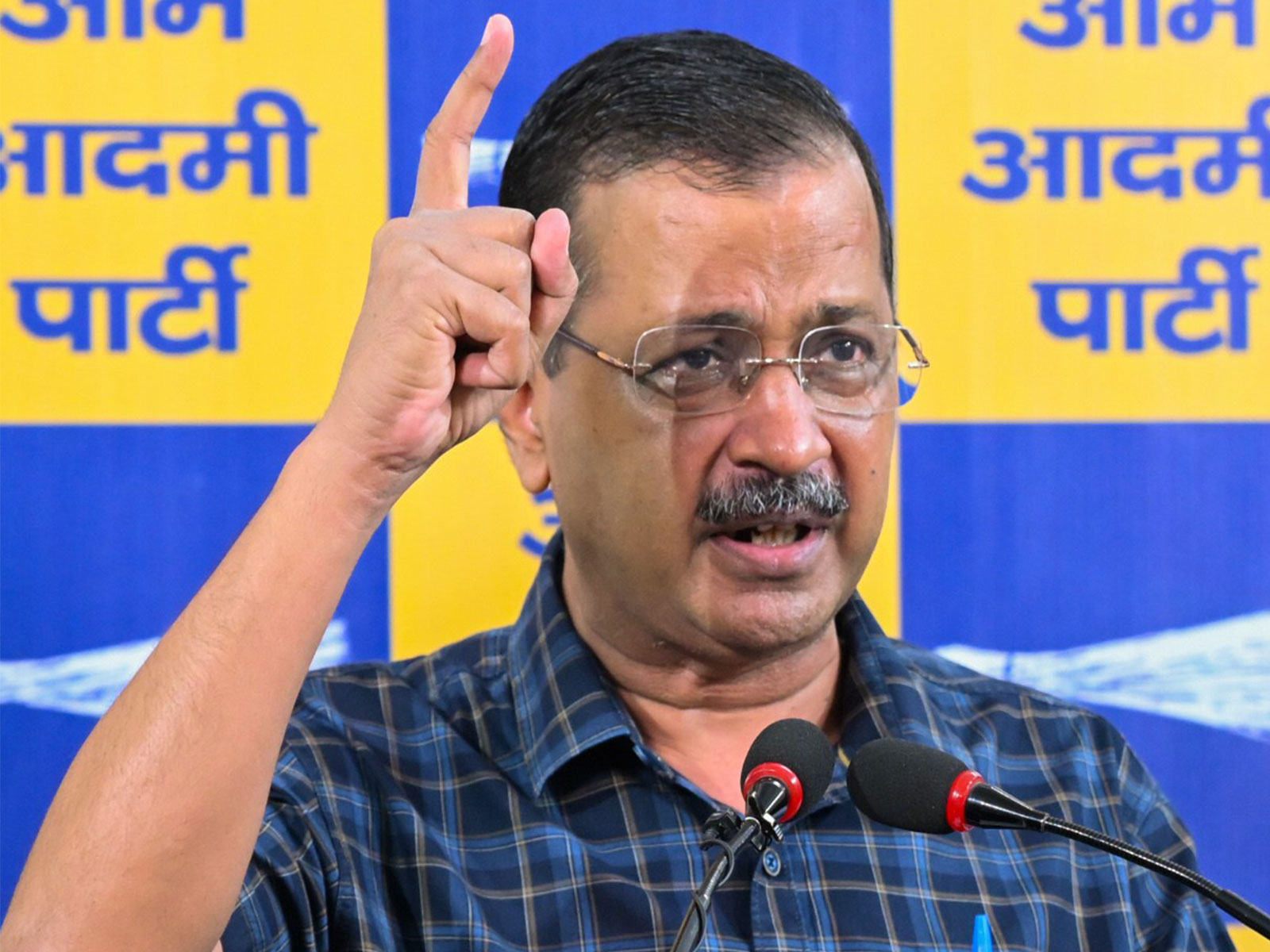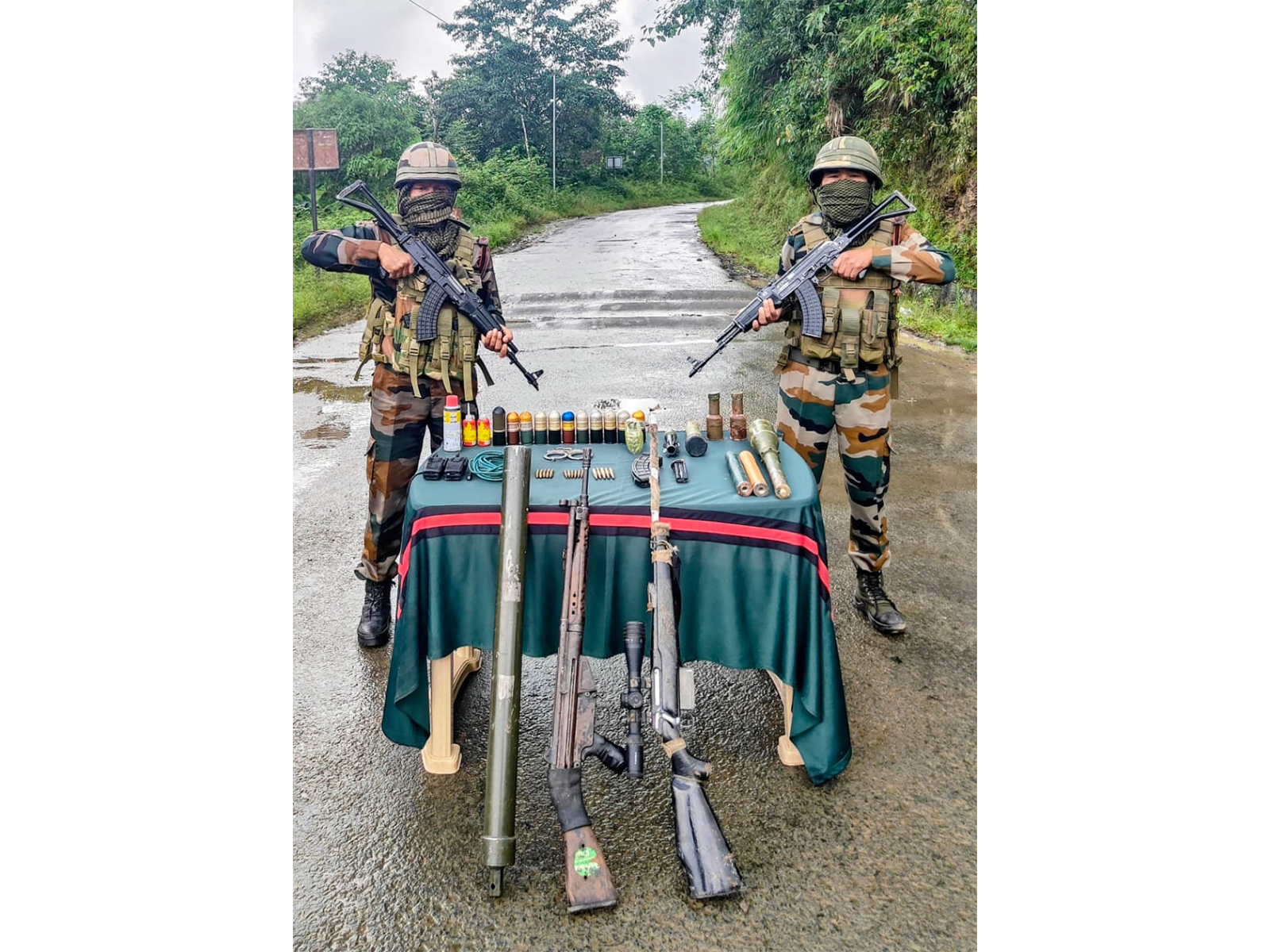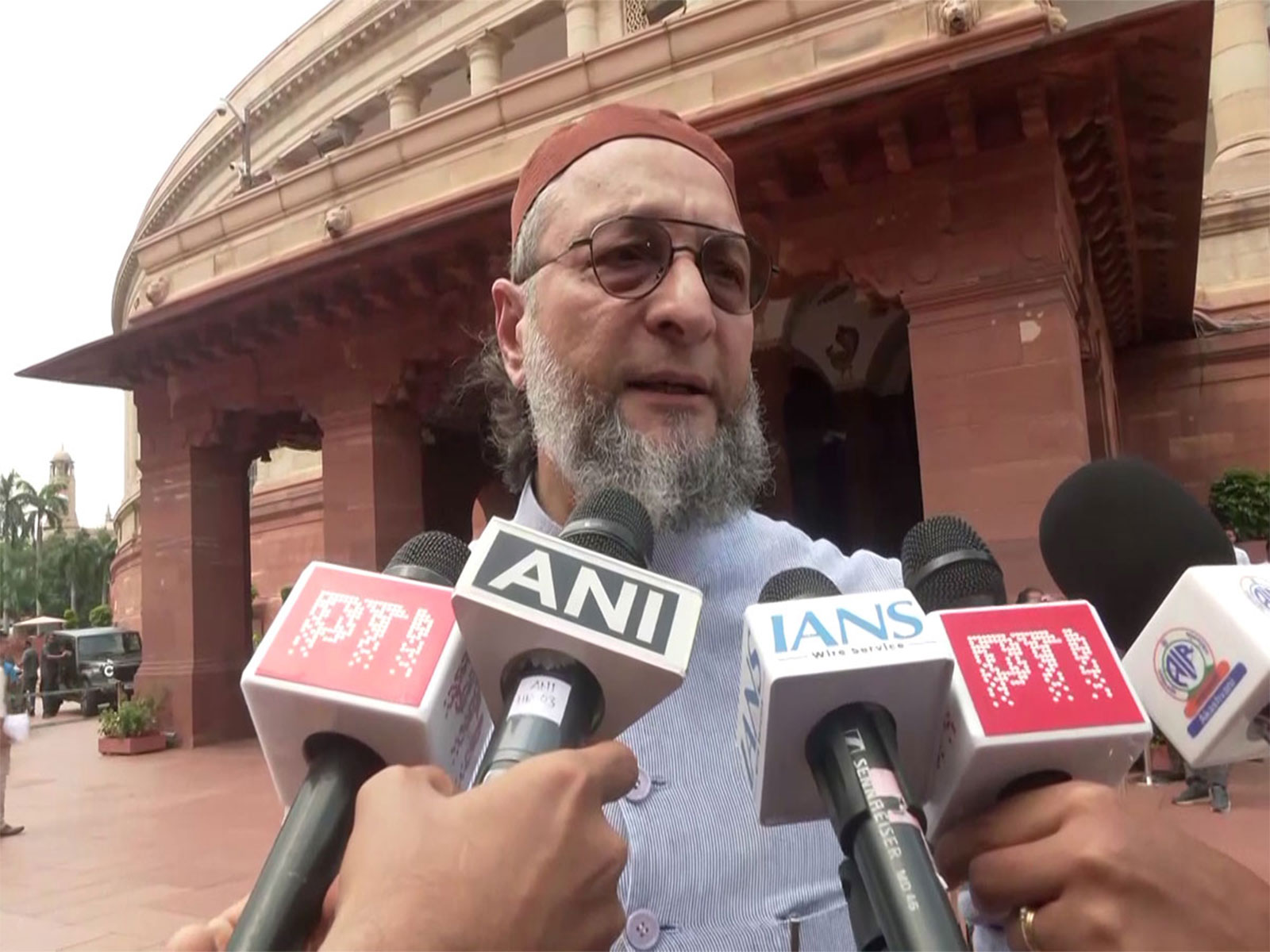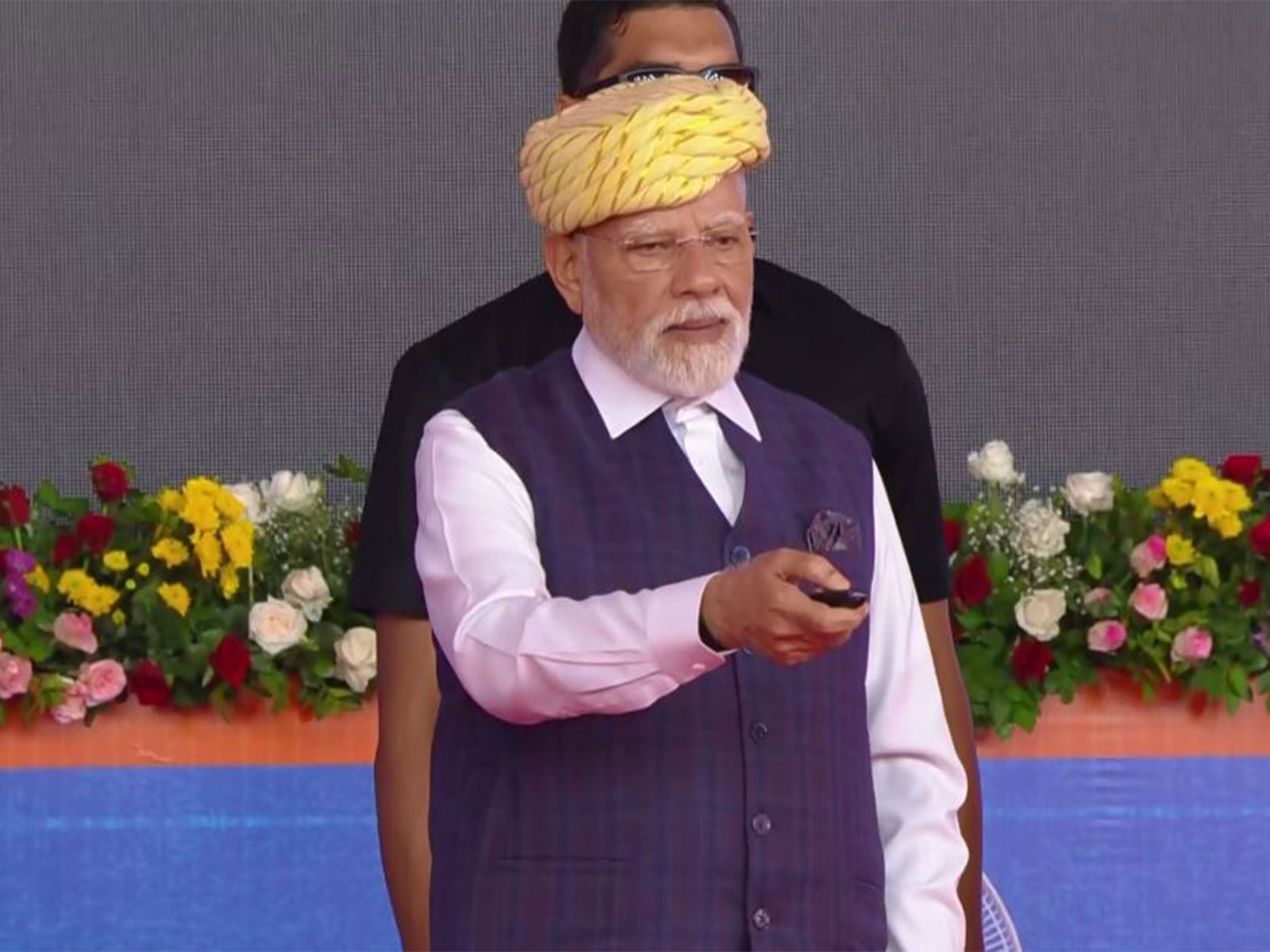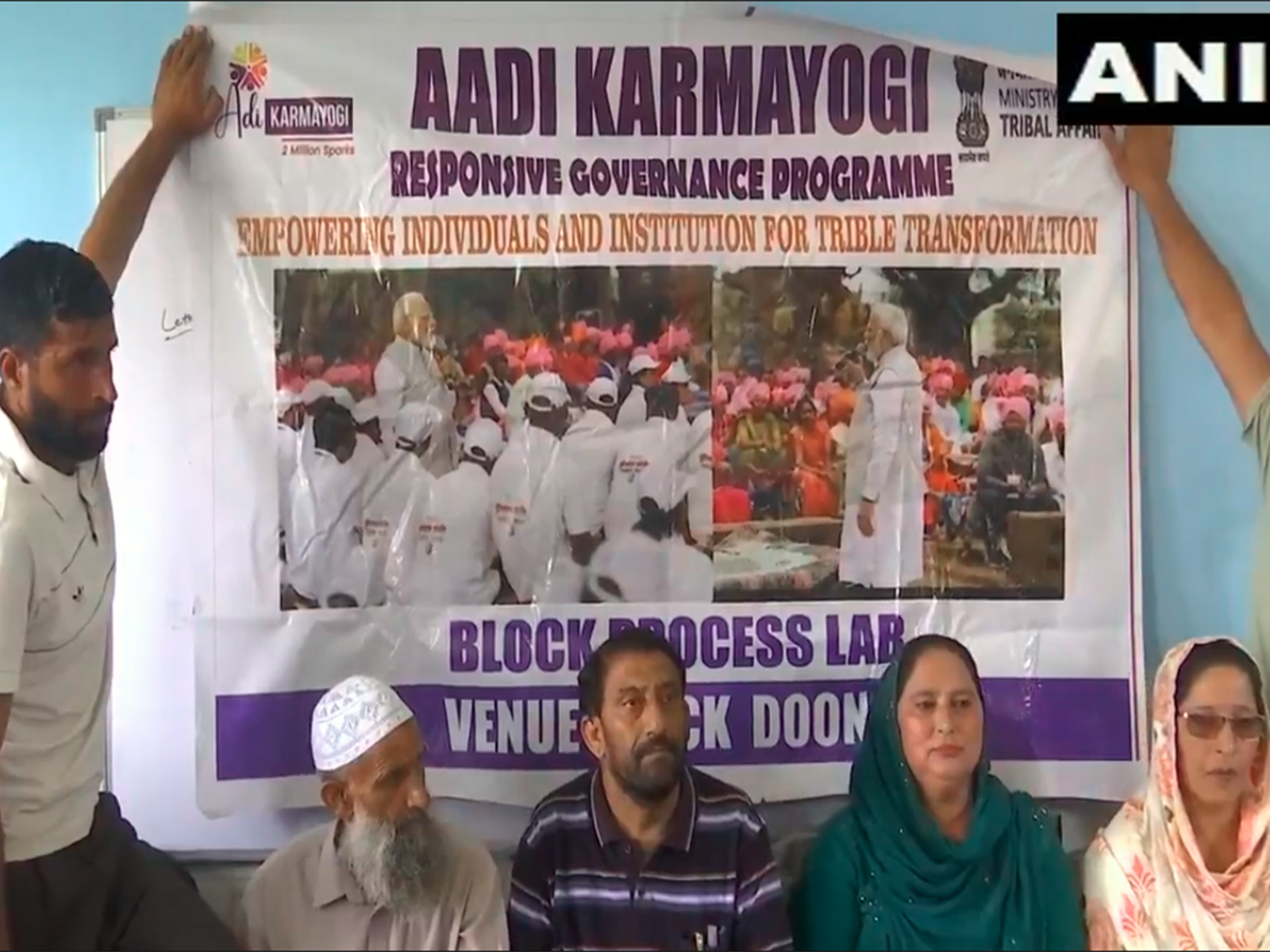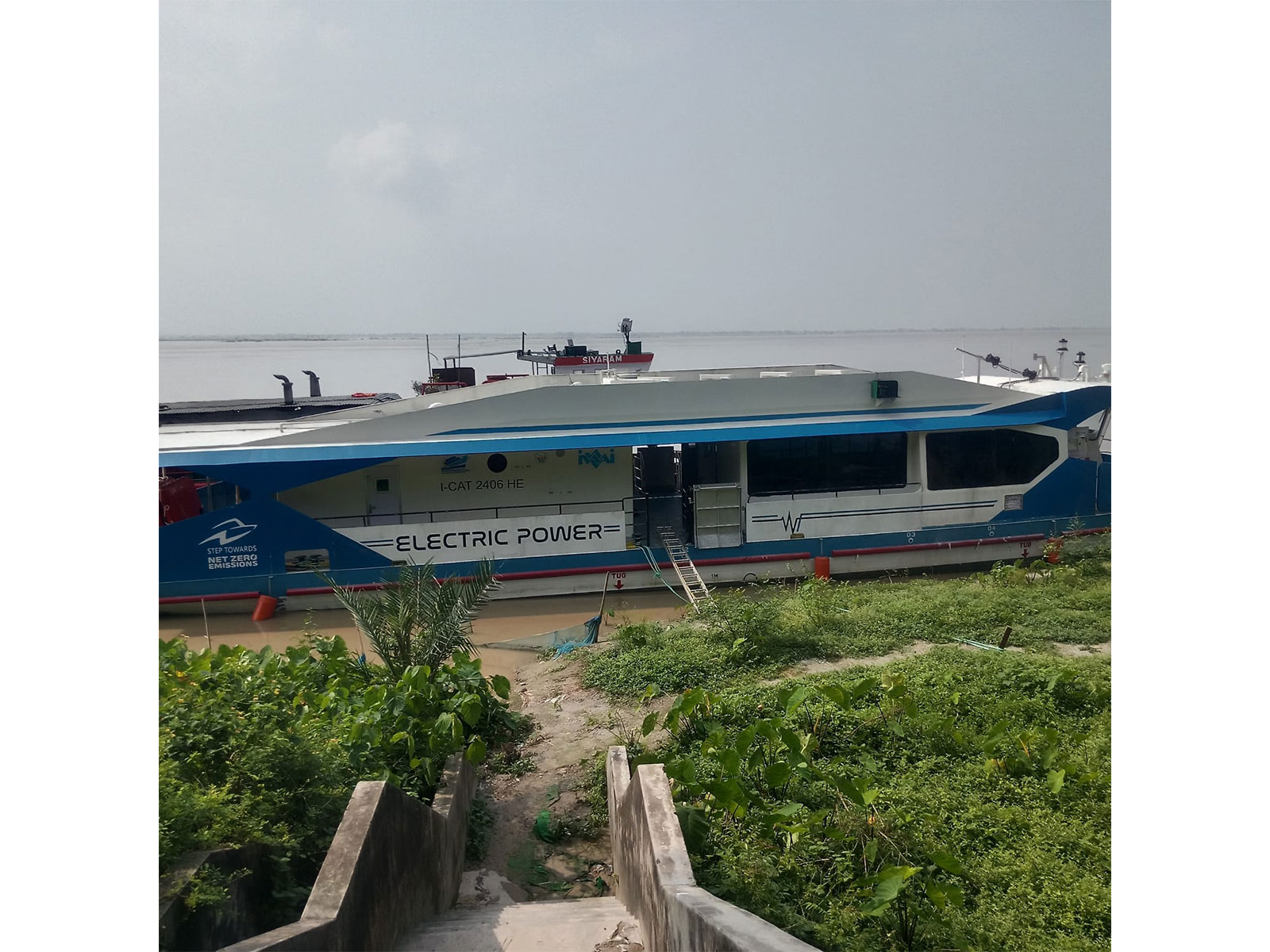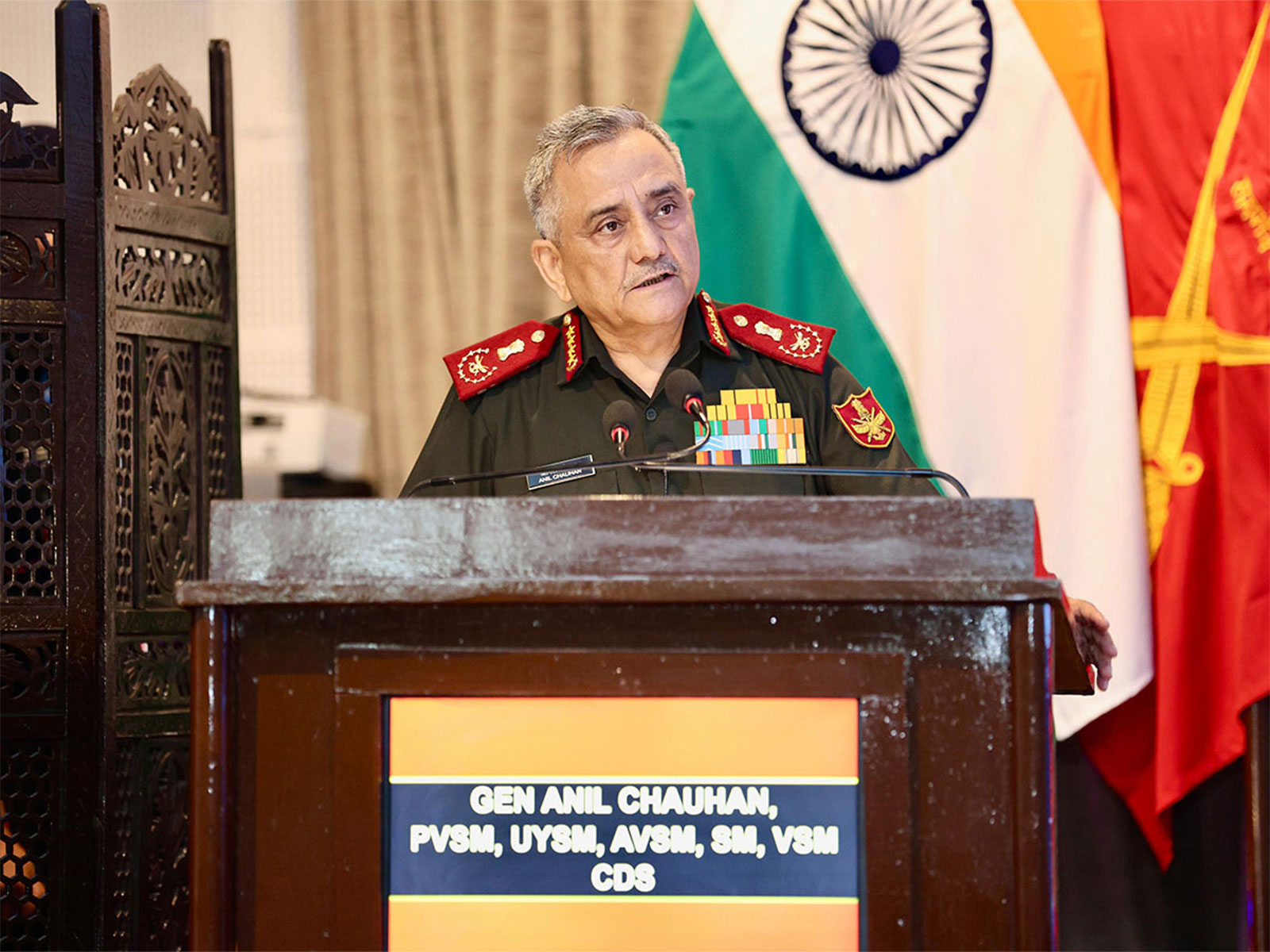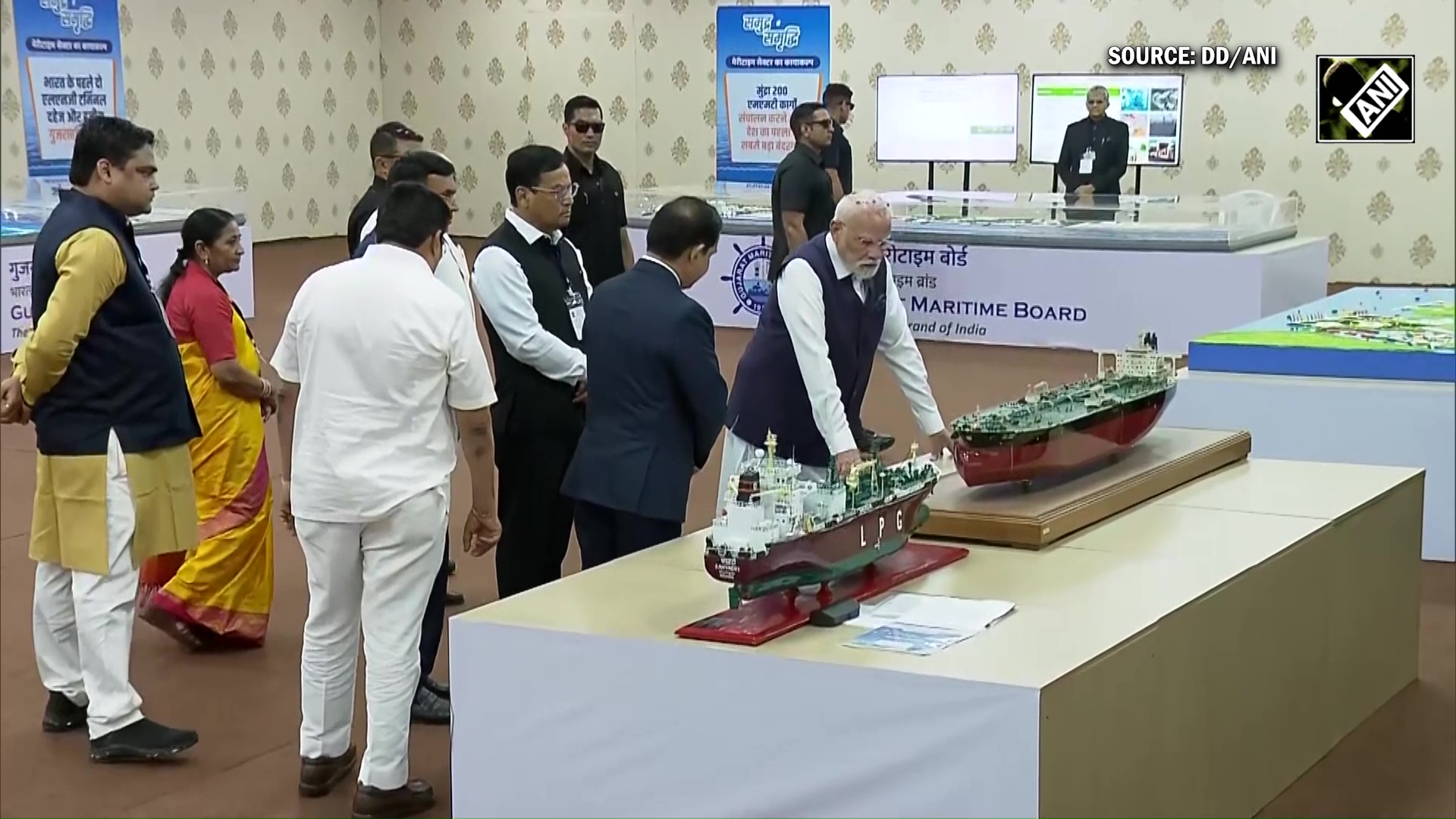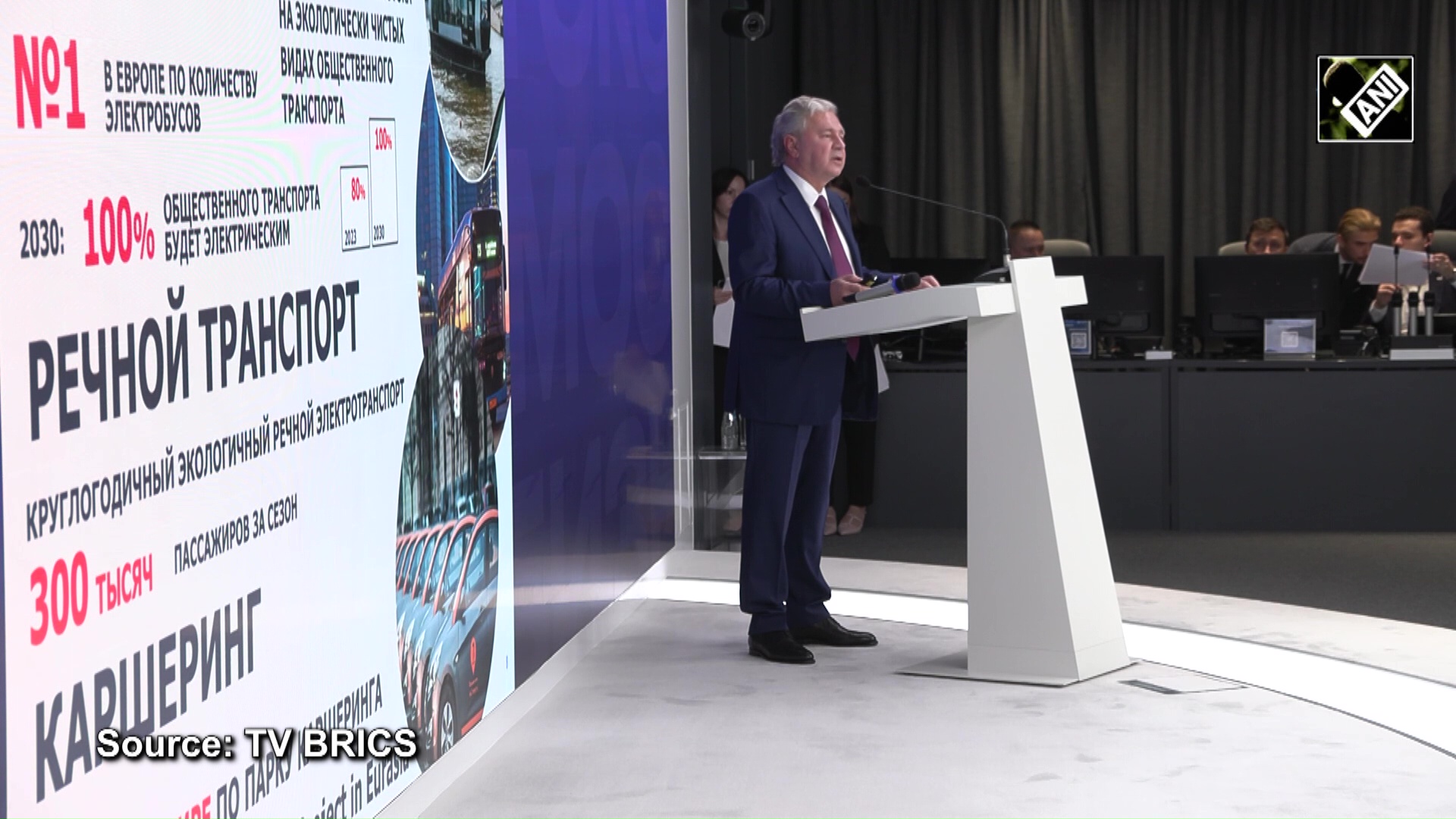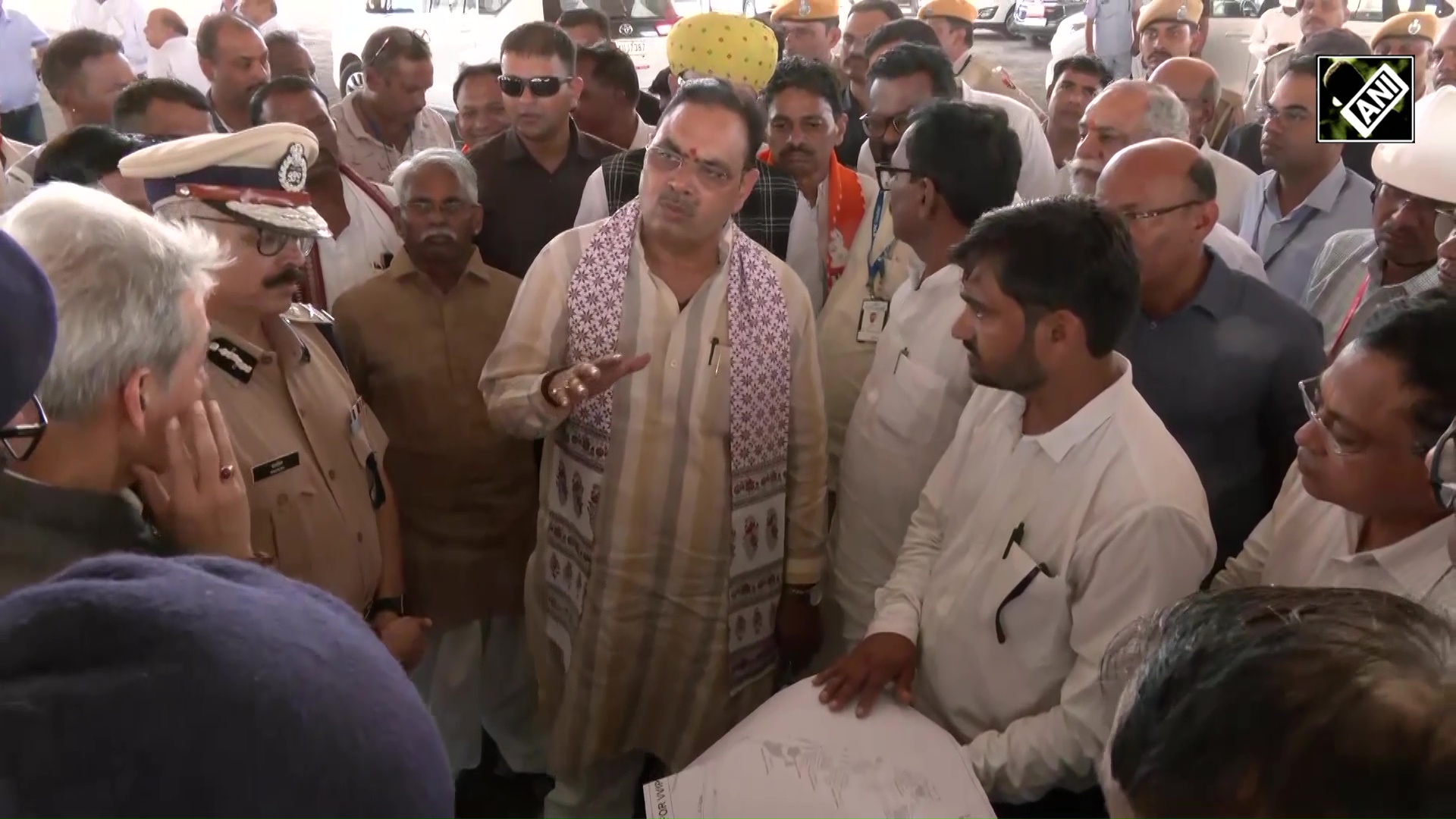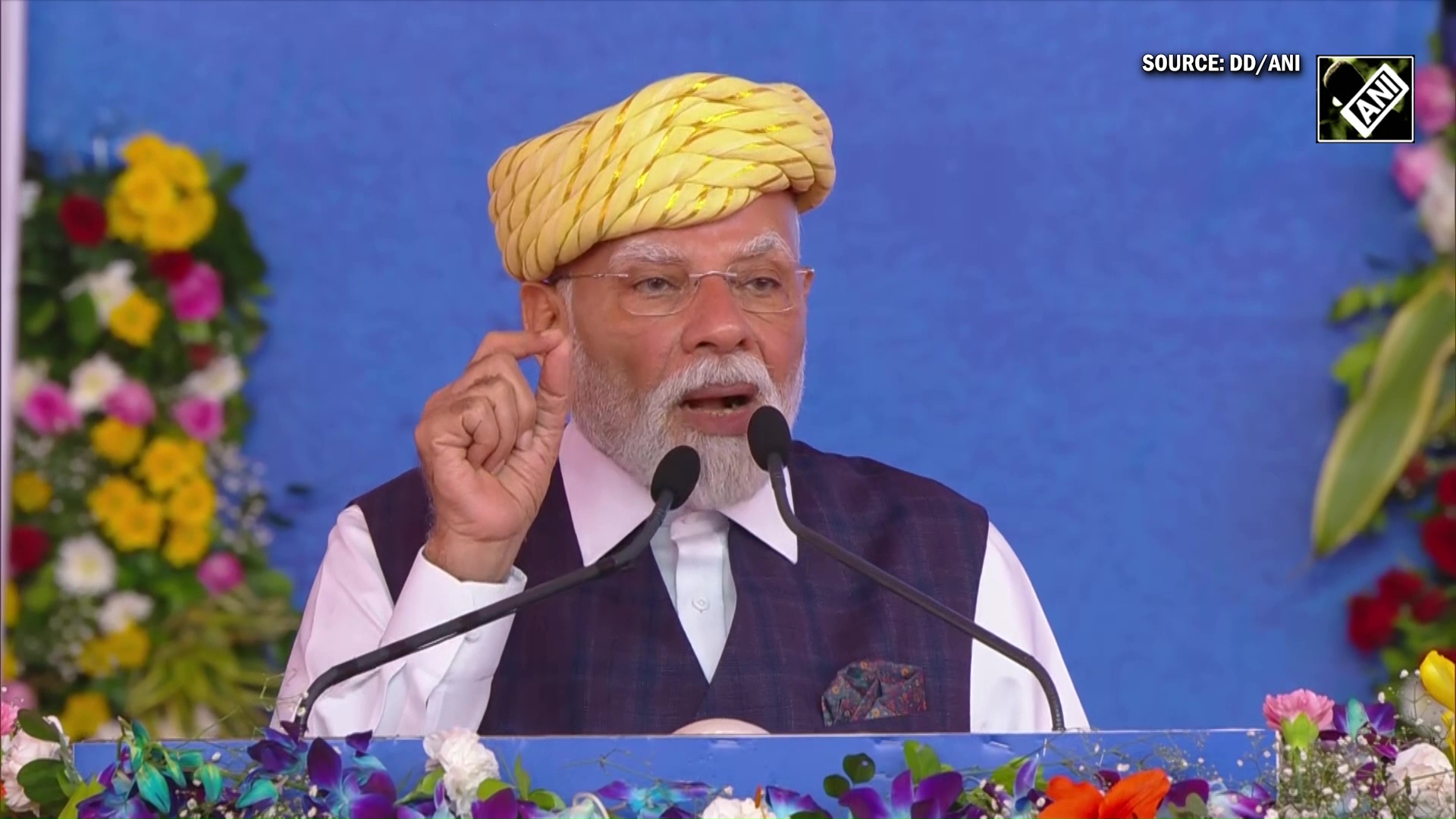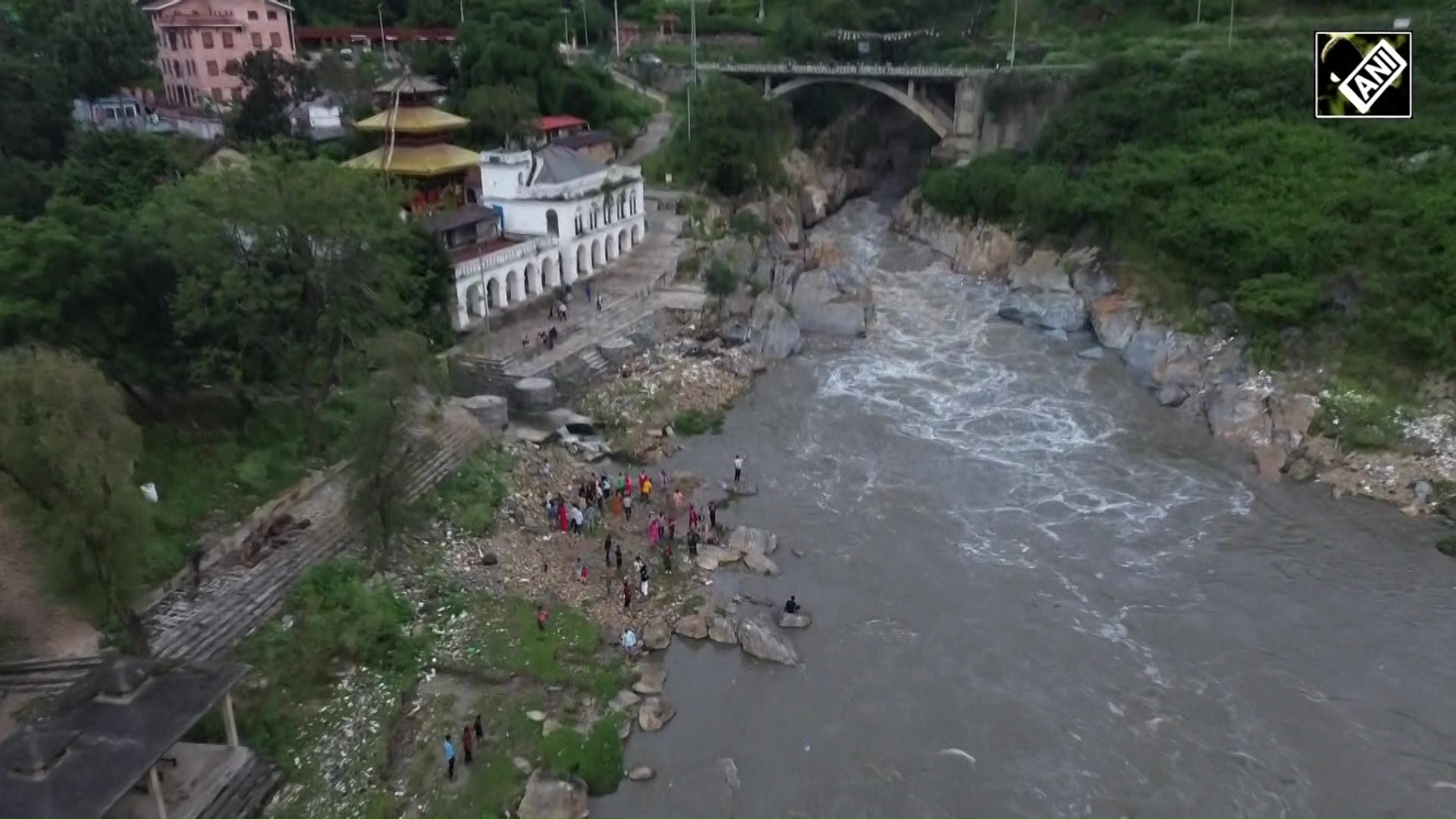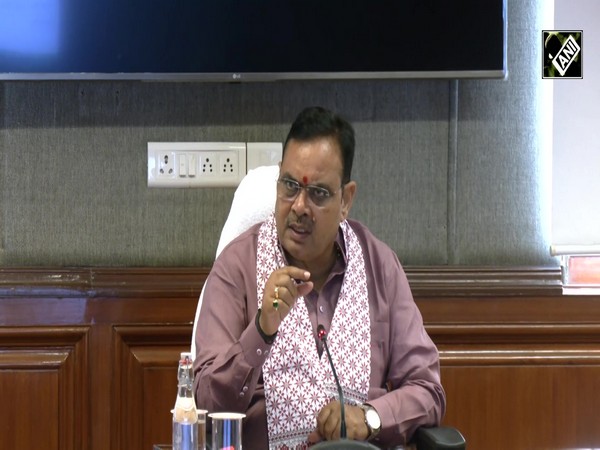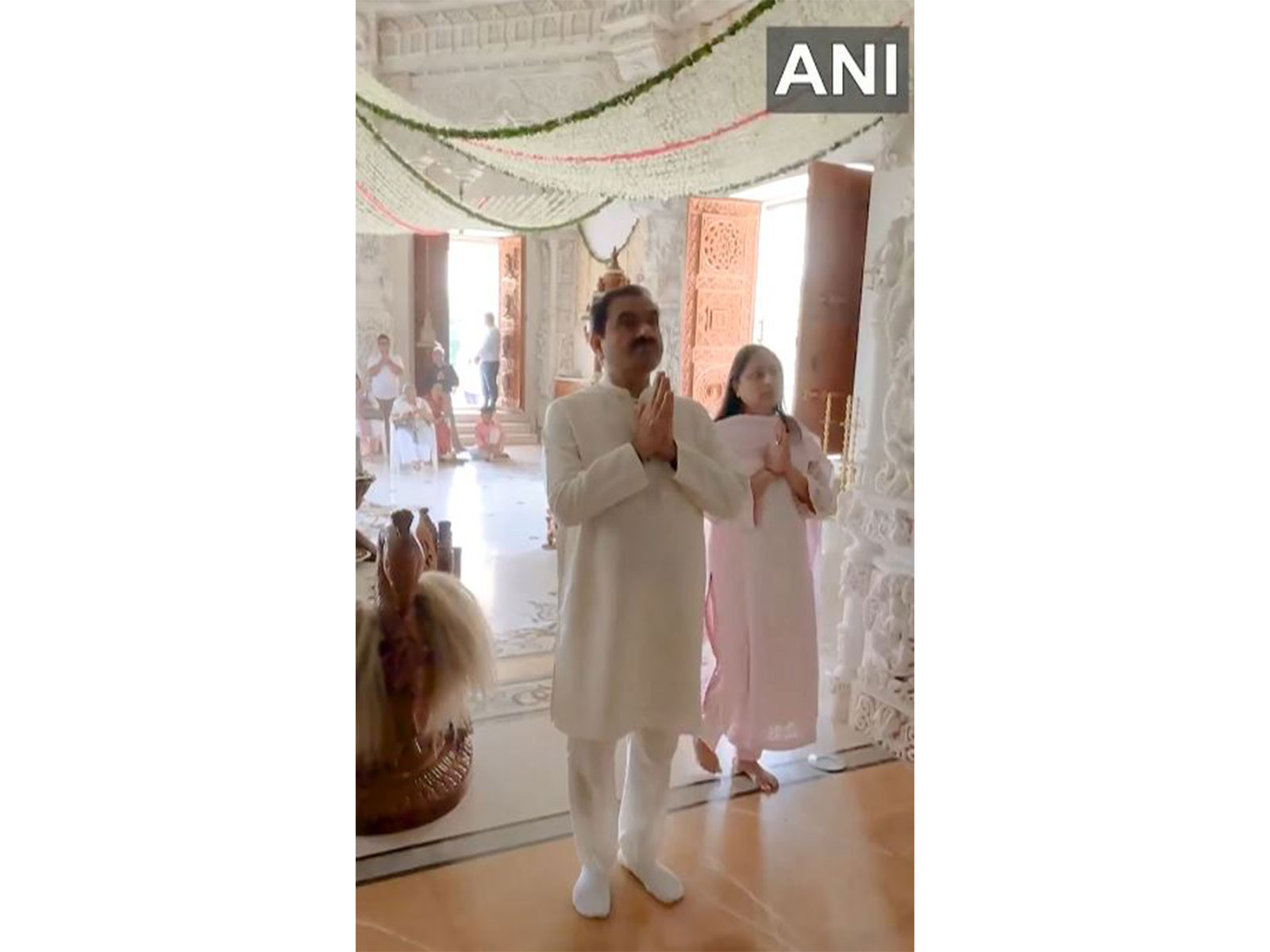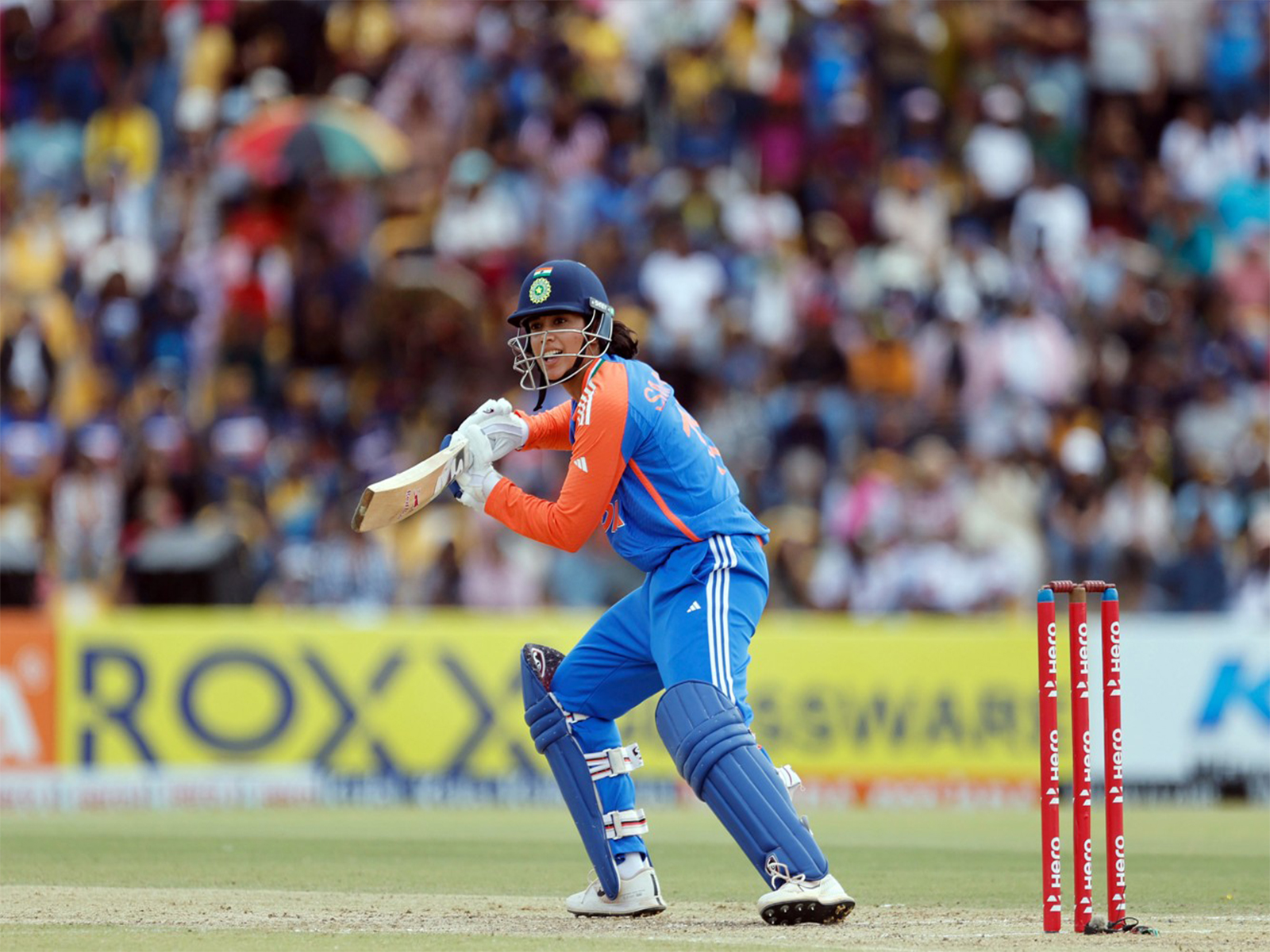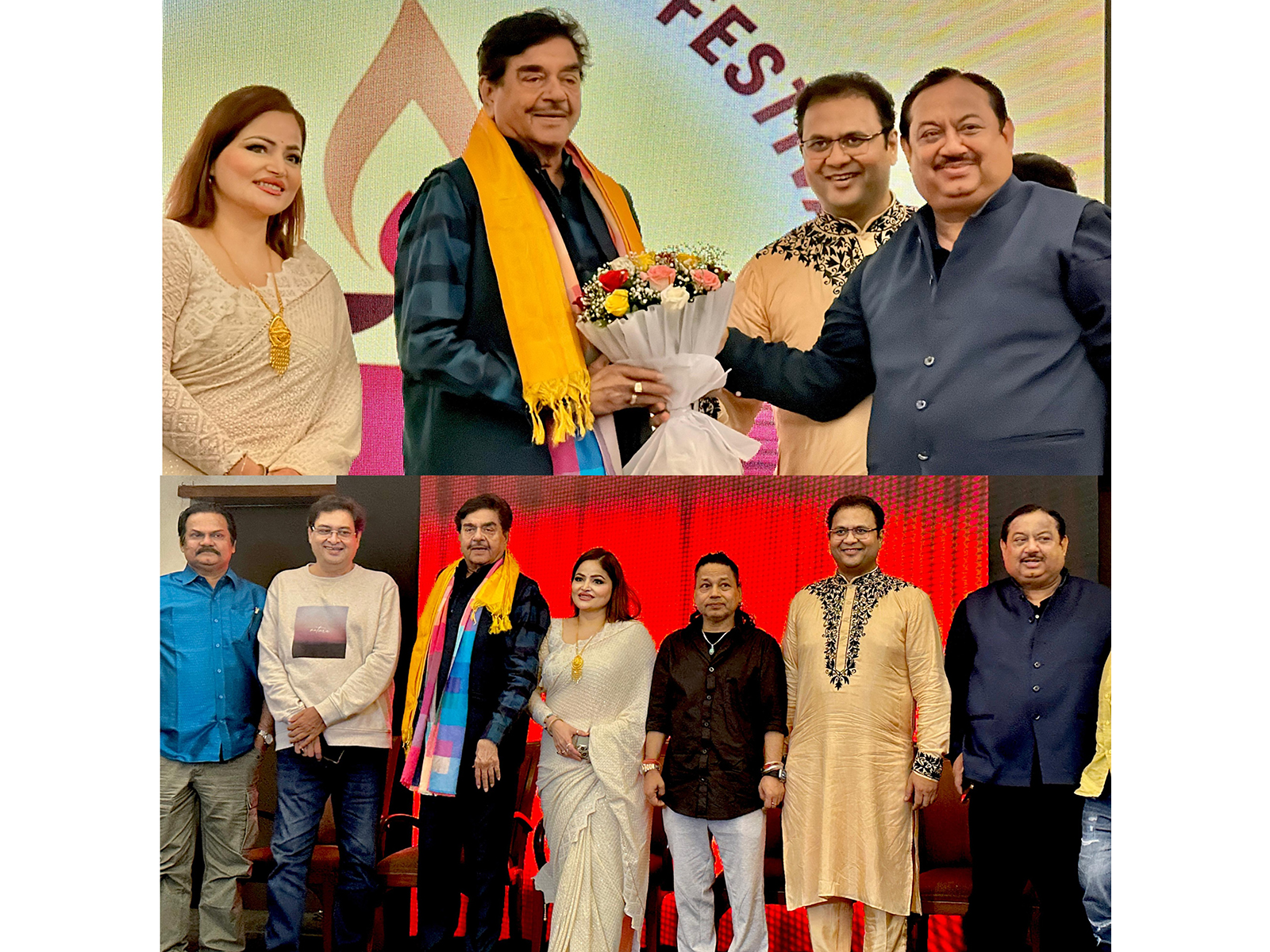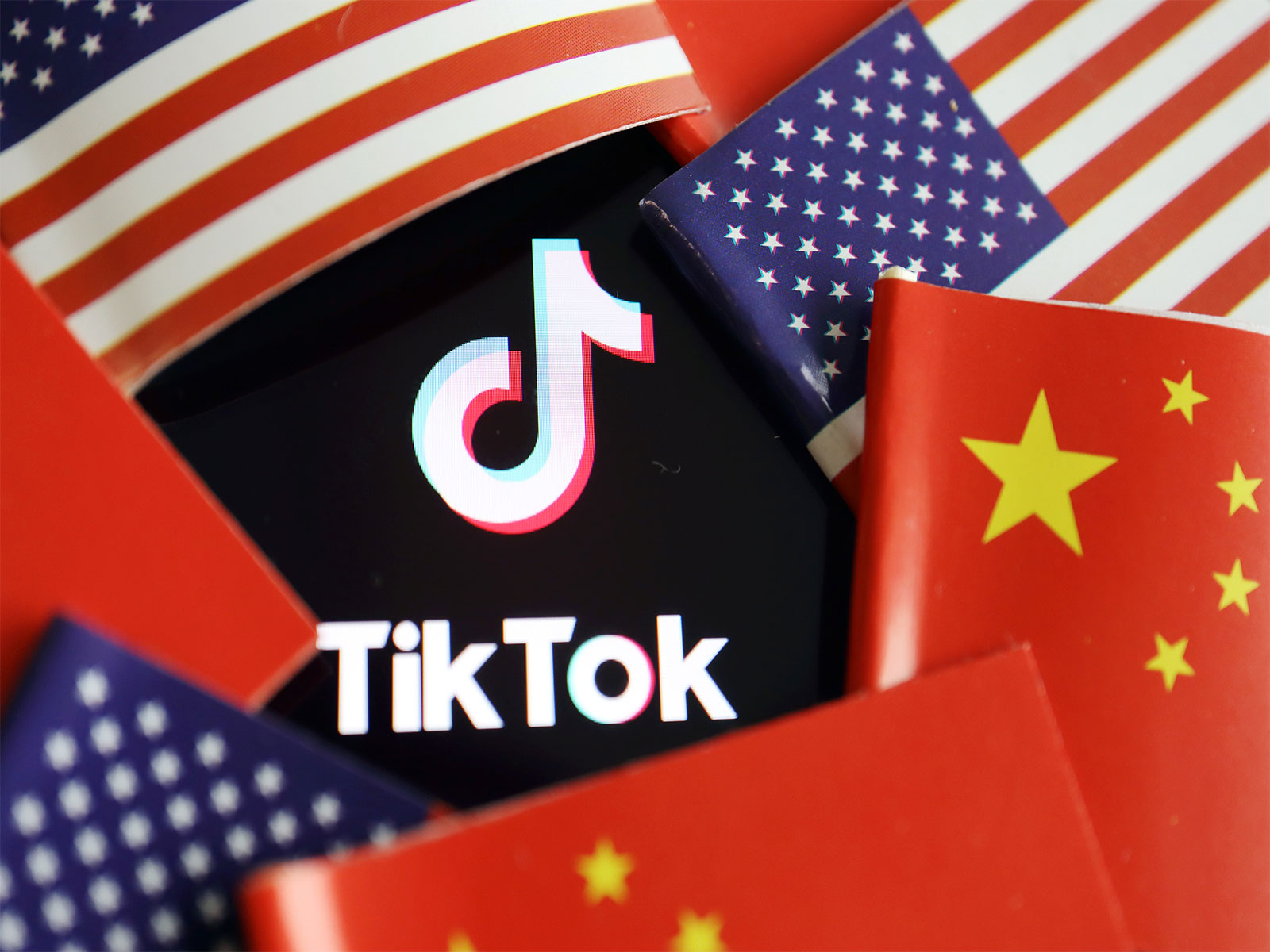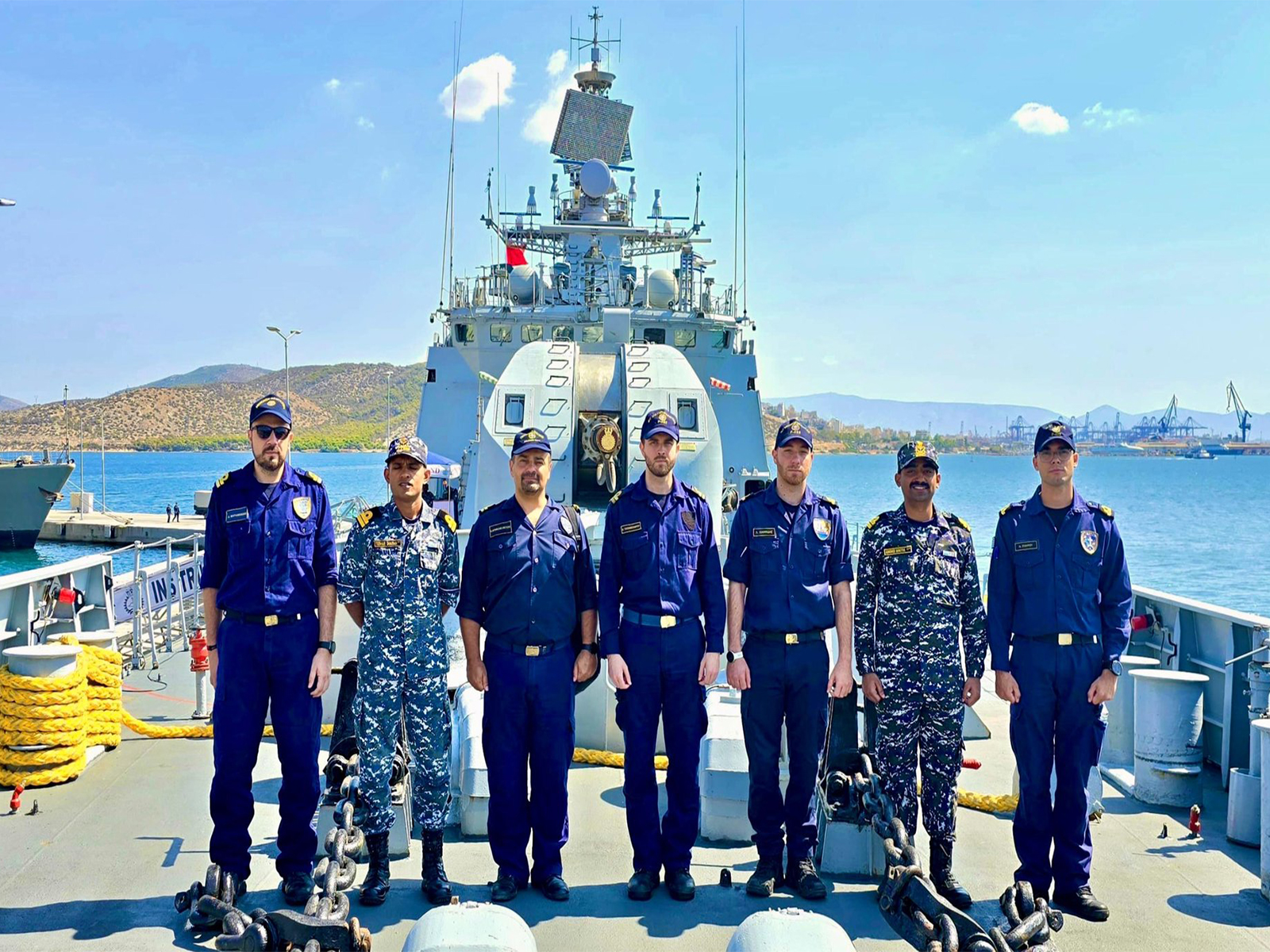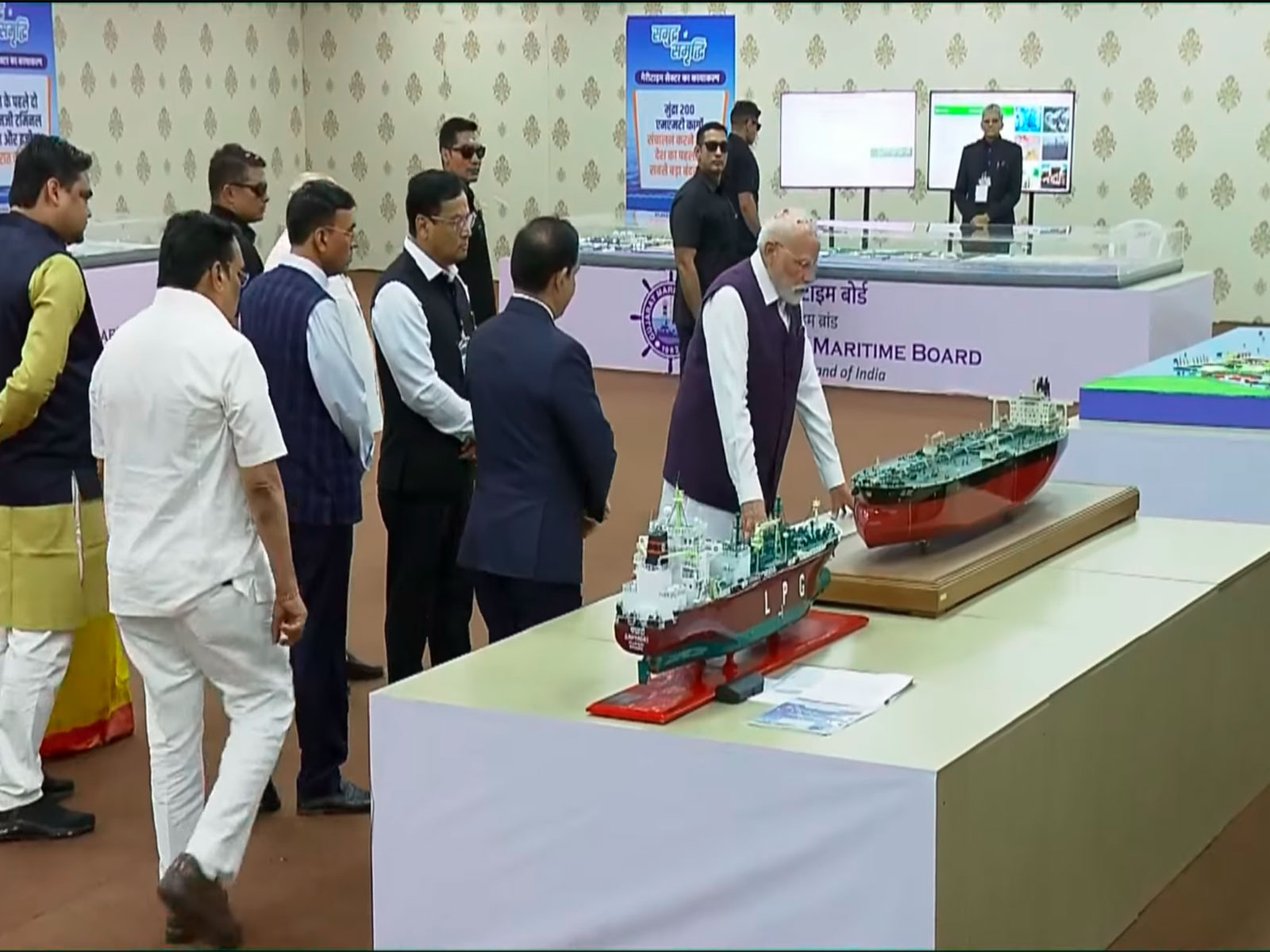
"Chips or ships, they must be 'Made in India'": Prime Minister Narendra Modi
Sep 20, 2025
New Delhi [India], September 20 : Prime Minister Narendra Modi inaugurated and laid the foundation stone of development works worth over Rs 34,200 crore in Bhavnagar, Gujarat, on Saturday.
Addressing the 'Samudra se Samriddhi' event, the Prime Minister welcomed all the dignitaries and the people.
"If India is to become a developed nation by 2047, it must become self-reliant, there is no alternative to self-reliance and that all 140 crore citizens must commit to the same resolve--whether it is chips or ships, they must be 'Made in India'", emphasised the Prime Minister, remarking that with this vision, India's maritime sector is now moving towards next-generation reforms.
He announced that from today, all major ports in the country will be freed from multiple documents and fragmented processes. The implementation of 'One Nation, One Document' and 'One Nation, One Port' Process will simplify trade and commerce.
PM Modi highlighted that during the recent Monsoon Session, several outdated laws from the colonial era were amended. He informed that a series of reforms have been initiated in the maritime sector, and five maritime laws have been introduced in a new form. These laws will bring major changes in shipping and port governance.
Acknowledging the birthday wishes sent to him on September 17, stating that the affection received from the people is a great source of strength, the Prime Minister highlighted that the nation is observing Seva Pakhwada from Vishwakarma Jayanti to Gandhi Jayanti, i.e., from 17th September to 2nd October.
He remarked that several service-oriented activities have taken place in Gujarat over the past 2-3 days. The Prime Minister noted that blood donation camps have been organised at hundreds of locations, with one lakh individuals having donated blood so far. He added that cleanliness drives have been conducted across numerous cities, with lakhs of citizens actively participating.
PM Modi informed that over 30,000 health camps have been set up across the state, providing medical check-ups and treatment to the public and women in particular. He extended his appreciation and gratitude to everyone involved in service activities across the country.
Prime Minister began by paying tribute to Krishnakumarsinh Ji, recalling his noble legacy and remarked that Krishnakumarsinh Ji made a significant contribution to India's unity by aligning with the mission of Sardar Vallabhbhai Patel. He highlighted that inspired by such great patriots, the nation continues to strengthen the spirit of unity. The Prime Minister emphasised that the resolve of Ek Bharat, Shreshtha Bharat, is being reinforced through these collective efforts.
Mentioning that he arrived in Bhavnagar at a time when the auspicious festival of Navratri is about to begin, Modi stated that due to the reduction in GST, markets will witness increased vibrancy and festive enthusiasm. In this celebratory atmosphere, the Prime Minister highlighted that the nation is celebrating a grand festival of Samudra se Samriddhi.
He emphasised that 21st-century India views the ocean as a major avenue of opportunity. Modi informed that projects worth thousands of crores have just been inaugurated and foundation stones laid to accelerate port-led development.
He added that to promote cruise tourism, the International Cruise Terminal in Mumbai has also been inaugurated today. The Prime Minister noted that development projects linked to Bhavnagar and Gujarat have also commenced and extended his heartfelt wishes to all citizens and the people of Gujarat.
"India is moving forward with the spirit of global brotherhood and India has no major enemy in the world today, but in true terms, India's biggest adversary is dependence on other nations", stated the Prime Minister, emphasising that this dependency must be collectively defeated.
He reiterated that greater foreign dependence leads to greater national failure. For global peace, stability, and prosperity, the world's most populous country must become self-reliant. He cautioned that reliance on others compromises national self-respect.
PM Modi asserted that the future of 140 crore Indians cannot be left to external forces, nor can the resolve for national development be based on foreign dependency. He stressed that the future of the coming generations must not be put at risk. He declared that the solution to a hundred problems is one--building an Atmanirbhar Bharat. To achieve this, India must confront challenges, reduce external dependence, and demonstrate true self-reliance.
Underscoring that India has never lacked capability, Modi remarked that after independence, the then-ruling party consistently ignored the country's inherent strengths. As a result, even after six to seven decades of freedom, India could not achieve the success it truly deserved.
The Prime Minister identified two major reasons for this: prolonged entanglement in the license-quota regime and isolation from global markets. He added that when the era of globalisation arrived, the then-ruling governments focused solely on imports, which led to scams worth thousands of crores. PM Modi emphasised that these policies caused significant harm to India's youth and prevented the nation's true potential from emerging.
Citing India's shipping sector as a major example of the damage caused by flawed policies, PM Modi remarked that India was historically a leading maritime power and one of the world's largest shipbuilding hubs. Ships built in India's coastal states once powered domestic and global trade. Even fifty years ago, India used domestically built ships, with over 40 per cent of import-export conducted through them.
The Prime Minister criticised the current opposition party, stating that the shipping sector later fell victim to their misguided policies, and instead of strengthening domestic shipbuilding, they preferred paying freight to foreign vessels. This led to the collapse of India's shipbuilding ecosystem and forced dependence on foreign ships. As a result, the share of Indian ships in trade dropped from 40 per cent to just 5 per cent. The Prime Minister emphasised that today, 95 per cent of India's trade relies on foreign ships--a dependency that has caused significant loss to the nation.
Presenting some figures before the nation, Modi remarked that citizens will be shocked to know that India pays nearly $75 billion --approximately six lakh crore rupees--every year to foreign shipping companies for shipping services. The Prime Minister highlighted that this amount is nearly equivalent to India's current defence budget.
He urged the public to imagine how much money has been paid as freight to other countries over the past seven decades. He pointed out that this outflow of funds has created millions of jobs abroad. PM Modi emphasised that if even a small portion of this expenditure had been invested by earlier governments in India's shipping industry, the world today would be using Indian ships, and India would be earning lakhs of crores in shipping services.
Underlining that India has been an expert in building large ships for centuries, the PM remarked that next-generation reforms will help revive this forgotten legacy. He highlighted that in the past decade, more than 40 ships and submarines have been inducted into the Navy, and barring one or two, all have been built in India.
He noted that the massive INS Vikrant was also constructed domestically, including the high-quality steel used in its production. Modi emphasised that India possesses the capability and lacks no skill. He assured the nation that the political will required to build large ships is firmly in place.
Highlighting that a historic decision was taken yesterday to strengthen India's maritime sector, PM Modi announced a major policy reform under which large ships have now been accorded infrastructure status. He remarked that when a sector receives infrastructure recognition, it gains significant advantages.
The PM highlighted that shipbuilding companies will now find it easier to secure loans from banks and will benefit from reduced interest rates. All benefits associated with infrastructure financing will now be extended to these shipbuilding enterprises.
PM Modi emphasised that this decision will reduce the financial burden on Indian shipping companies and help them compete more effectively in the global market.
Emphasising that to make India a major maritime power, the Government "is working on three major schemes," the PM remarked that these initiatives will ease financial support for the shipbuilding sector, help shipyards adopt modern technology, and improve design and quality standards. He informed that over ₹70,000 crore will be invested in these schemes in the coming years.
Recalling that in 2007, during his tenure as Chief Minister of Gujarat, a major seminar was held in Gujarat to explore shipbuilding opportunities, PM Modi remarked that it was during that period that Gujarat extended support to develop a shipbuilding ecosystem. He stated that India is now taking comprehensive steps to promote shipbuilding nationwide.
He emphasised that shipbuilding is not an ordinary industry; it is globally referred to as the "Mother of All Industries" because it drives the growth of multiple allied sectors. The Prime Minister highlighted that industries such as steel, machinery, electronics, textiles, paints, and IT systems are all supported by the shipping sector.
He noted that this creates significant benefits for small and medium enterprises (MSMEs). Citing research, the Prime Minister stated that every rupee invested in shipbuilding generates nearly double the economic return. He added that every job created in a shipyard leads to six to seven new jobs in the supply chain, meaning 100 shipbuilding jobs can result in over 600 jobs in related sectors, underscoring the massive multiplier effect of the shipbuilding industry.
Prime Minister further stated that focused efforts are being made to strengthen the essential skill sets required for shipbuilding. He remarked that India's Industrial Training Institutes (ITIs) will play a key role in this initiative, and the Maritime University's contribution will be further expanded.
PM Modi highlighted that in recent years, new frameworks have been developed through coordination between the Navy and NCC in coastal areas. He added that NCC cadets will now be prepared not only for naval roles but also for responsibilities in the commercial maritime sector.
Stressing that today's India is moving forward with a distinct momentum, the PM remarked that the nation not only sets ambitious goals but also achieves them ahead of schedule. In the solar sector, India is meeting its targets four to five years in advance.
PM Modi highlighted that the objectives set eleven years ago for port-led development are now being met with remarkable success. He informed that large ports are being developed across the country to accommodate large vessels, and connectivity is being enhanced through initiatives like Sagarmala.
Noting that in the past eleven years, India has doubled its port capacity, Modi highlighted that prior to 2014, the average ship turn-around time in India was two days, whereas today it has been reduced to less than one day.
He informed that new and large ports are being constructed across the country. He remarked that recently, India's first deep-water container trans-shipment port commenced operations in Kerala. Additionally, the PM announced that the Vadhavan Port in Maharashtra is being developed at a cost exceeding ₹75,000 crore, and it will rank among the top ten ports in the world.
Mentioning that India currently accounts for 10 per cent of global maritime trade, PM Modi emphasised the need to increase this share and declared that by 2047, India aims to triple its participation in global sea trade--and will achieve it.
The Prime Minister remarked that as maritime trade expands, the number of Indian seafarers is also rising. He described these professionals as hardworking individuals who operate ships, manage engines and machinery, and oversee loading and unloading operations at sea. A decade ago, India had fewer than 1.25 lakh seafarers. Today, that number has crossed three lakh.
PM Modi highlighted that India now ranks among the top three countries globally in supplying the highest number of seafarers and added that India's growing shipbuilding industry is also strengthening global capabilities.
Underscoring that India possesses a rich maritime heritage, symbolised by its fishermen and ancient port cities, Modi remarked that Bhavnagar and the Saurashtra region are prominent examples of this legacy. The Prime Minister emphasised the importance of preserving and showcasing this heritage for future generations and the world. He announced that a world-class maritime museum is being developed at Lothal, which, like the Statue of Unity, will become a new symbol of India's identity.
"India's coastlines will become gateways to national prosperity", exclaimed the Prime Minister. He expressed happiness that Gujarat's coastline is once again proving to be a boon for the region. He remarked that this entire area is now setting a new benchmark for port-led development in the country.
PM Modi highlighted that Gujarat's ports handle 40 per cent of the cargo arriving via sea routes in India, and these ports will soon benefit from the Dedicated Freight Corridor, which will enable faster movement of goods to other parts of the country and further enhance port efficiency.
PM Modi stated that a robust ship-breaking ecosystem is emerging in the region, with the Alang Ship Breaking Yard serving as a prime example. He noted that this sector is generating significant employment opportunities for young people.
The Prime Minister emphasised that to build a developed India, rapid progress is needed across all sectors. He reiterated that the path to a developed India passes through self-reliance. He urged citizens to remember that whatever they buy should be indigenous, and whatever they sell should also be indigenous.
Addressing shopkeepers, PM Modi encouraged them to display posters in their shops reading: "Say with pride, this is Swadeshi." He concluded by stating that this collective effort will transform every festival into a celebration of India's prosperity, and extended his best wishes to all on the occasion of Navratri.
Chief Minister of Gujarat, Bhupendrabhai Patel, Union Ministers, CR Patil, Sarbananda Sonowal, Dr Mansukh Mandaviya, Shantanu Thakur, Nimuben Bambhaniya were present among other dignitaries at the event.
